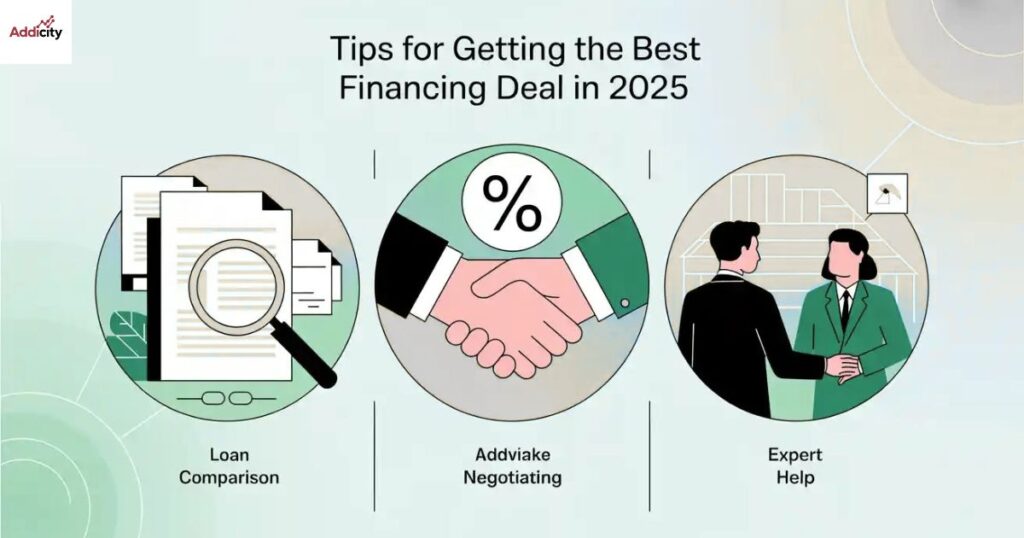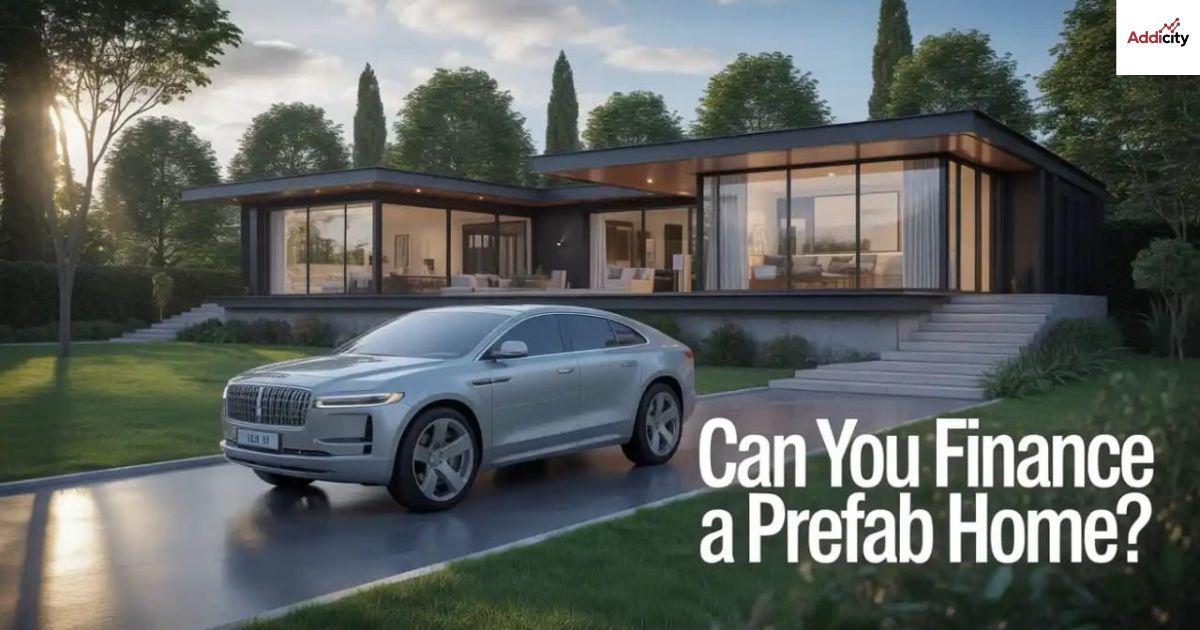Buying a prefab home is becoming a popular choice for Americans seeking speed, style, and value. But many still ask, can you finance a prefab home without the hassle of traditional bank loans? The answer is yes, and today’s market offers more flexibility than ever.
From FHA loans for modular homes with lower entry costs to home equity loans for prefab homes that tap into existing property value, buyers have multiple pathways. Some also choose alternative financing options like personal loans, credit unions, or builder-backed plans. Understanding these solutions ensures you secure the best terms and confidently turn your housing vision into reality in 2025.
What Are Modular and Prefab Homes?
Modular and prefab homes are built in sections inside a factory and then transported to the site for assembly. The modular home construction process ensures quality control because the building happens in a controlled environment. This reduces weather delays and improves consistency.
Prefab homes can include modular designs, panelized structures, and even tiny homes. Their appeal lies in flexibility, affordability, and faster delivery. As demand grows, lenders now offer more affordable housing financing options tailored to these properties.
Why Financing a Prefab Home Is Different From Traditional Houses
Financing a modular home is not the same as buying a standard house. Many lenders see them as different assets because of how they are built and delivered. This affects the loan approval process for modular homes and may limit available lenders.
Another difference is the funding timeline. Some loans release funds during construction, while others release them after the home is complete. Understanding these terms early helps when you compare modular home loan options and plan payments.
Pros and Cons of Prefab Home Ownership
Owning a prefab home has clear benefits. They are built faster than traditional homes, often within weeks. They also allow for design flexibility and can cost less overall. With competitive interest rates for prefab homes, many buyers find long-term savings.
However, there are challenges. Land zoning laws may slow projects. Some lenders still have stricter credit score requirements for prefab homes. In some areas, resale values may vary, which is worth considering before committing.
Types of Mortgages Available for Modular and Prefab Homes
In 2025, buyers can choose from several loan types. FHA loans for modular homes remain popular for their low down payment home loans and flexible credit requirements. VA loans serve military families with no down payment needed.
Construction-to-permanent loans allow financing for both building and permanent mortgages in one package. Conventional mortgages from specialized lenders for modular homes may offer better interest rate comparison options if you meet the requirements.
Alternative Financing Options Beyond Bank Mortgages
When financing a modular home without bank mortgage approval, other routes exist. Personal loans for modular homes work well for smaller amounts or quick funding, though interest rates for personal loans can be higher.
Home equity loans for prefab homes and HELOCs use your property equity as collateral, often giving better terms. Manufacturer financing for modular homes can also be convenient but should be weighed against market offers for flexible financing terms.
Government Loans and Assistance Programs
The U.S. offers several government assistance programs for prefab buyers. USDA loans for rural modular homes provide zero down payment home loans for qualifying locations under rural housing programs.
FHA Title I loans are available for buyers with lower incomes or those who need flexible credit requirements. Some states also offer grants or subsidies for first-time buyers as part of affordable housing financing options.
How to Choose the Right Lender for Your Prefab Home
Choosing the right lender involves more than just looking at rates. Check if the lender understands the loan approval process for modular homes and has experience with these builds.
Always compare modular home loan options by reviewing loan term length, fees, and penalties. This ensures the total cost of financing remains within your budget.
Credit Score Requirements and How to Improve Approval Chances
Most lenders expect certain credit score requirements to be met before offering loans. Higher scores can lead to lower rates and better terms.
To improve credit score for home financing, clear existing debts, pay bills on time, and avoid new credit applications before applying. This preparation improves your odds during the loan approval process for modular homes.
Budgeting and Cost Planning for a Prefab Home
Budgeting means looking beyond just the base price. Include costs for land, permits, delivery, and utilities. Factor in insurance and potential mortgage insurance for FHA loans if applicable.
Tracking the total cost of financing prevents surprises. A clear plan ensures you can meet down payment requirements and manage future expenses comfortably.
| Cost Element | Estimated Range (USD) |
| Base Modular Home Price | $80,000 – $250,000 |
| Land Purchase | $20,000 – $100,000 |
| Delivery & Assembly | $5,000 – $15,000 |
| Permits & Fees | $1,000 – $5,000 |
| Insurance & Taxes | Varies by State |
Legal Considerations and Contract Essentials
Before signing, review contracts for warranties, delivery timelines, and cancellation policies. Include clauses that protect against foreclosure risk if delays occur.
Check zoning regulations and building codes in your area. This ensures your modular home construction process meets all legal requirements for a smooth build.
Tips for Getting the Best Financing Deal in 2025
To secure the best deal, compare modular home loan options across multiple lenders. Negotiating terms can lead to better interest rate comparison results.
Consider working with a financial advisor for home financing to find hidden opportunities or state programs that reduce costs. This expert insight can save thousands over the loan term length.

FAQs
1. Can you finance a prefab home?
Yes, you can finance a prefab home through conventional loans, government programs, or alternative financing options.
2. What credit score is needed for prefab home financing?
Most lenders prefer a score above 620, though FHA loans for modular homes may accept lower scores.
3. Are prefab homes eligible for government loans?
Yes, programs like USDA loans for rural modular homes and FHA Title I loans are available.
4. Can I avoid a bank mortgage when buying a prefab home?
Yes, using personal loans for modular homes, home equity, or manufacturer financing is possible.
5. Do prefab homes require mortgage insurance?
Yes, if you choose certain loans like mortgage insurance for FHA loans with low down payments.
Conclusion
In 2025, securing modular home financing in the USA offers more possibilities than ever. Whether through FHA loans for modular homes, alternative financing options, or government assistance programs, buyers have the tools to succeed.
By preparing early, understanding the loan approval process for modular homes, and making smart comparisons, you can turn your prefab home dream into reality with confidence and financial security.
Ready for more smart tips? Visit Our Website

Welcome to Addicity! My Self Gulsher Ali, an AI-Powered SEO and Digital Marketer With 2 Years+ Experience. I help Businesses to rank higher on Google top Spots, Grow organic Traffic and increase Website Visibility on Search Engines. My Goal is to make SEO and Web Designing simple and effective for everyone. Let’s Connect with me to convert your Dreams into Reality!
